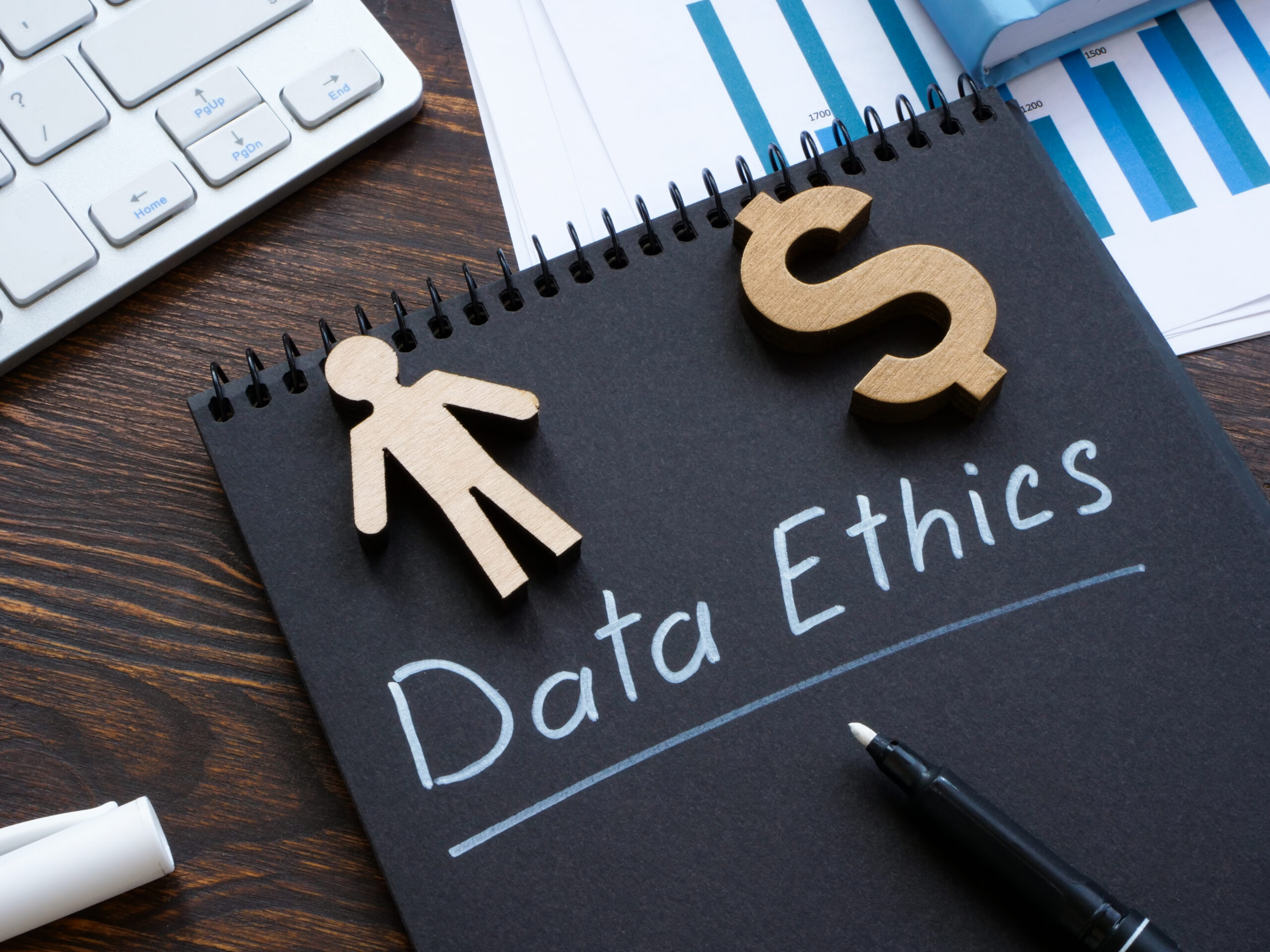Journalists in the digital age have access to more data than ever before to inform their reporting. However, with the power of big data comes great responsibility. When using data to tell impactful stories, carefully consider the ethical implications. In particular, issues around privacy, consent, and data accuracy demand thoughtful reflection. By examining these challenges and establishing best practices, harness the potential of data journalism while upholding ethical standards. This article provides key recommendations to help maintain integrity in navigating this complex landscape. With conscientiousness and care, leverage data to create meaningful journalism that serves the public good.
The Importance of Ethics in Data Journalism
Protecting Privacy and Consent
In the world of data journalism, safeguarding individual privacy and obtaining proper consent are paramount ethical considerations. You must exercise extreme caution when handling personal information, ensuring it is anonymized and used solely for legitimate journalistic purposes. Failure to do so could result in unintended consequences, such as the exploitation of vulnerable individuals or the disclosure of sensitive data.
Establishing clear guidelines for obtaining consent from data subjects is equally crucial. Transparency about how their information will be utilized, stored, and potentially shared is not only an ethical imperative but also a legal requirement in many jurisdictions.
Ensuring Data Accuracy and Integrity
- The credibility of your data-driven reporting hinges on the accuracy and integrity of the data you analyze. Verifying the provenance and reliability of your data sources is an ethical obligation to uphold journalistic principles of truth and accuracy. Failure to do so could lead to the dissemination of misinformation, eroding public trust in the media.
- Furthermore, you must exercise caution when interpreting and presenting data, avoiding cherry-picking or manipulating it to support preconceived narratives. Ethical data journalism demands a commitment to objective, impartial analysis and a willingness to let the data speak for itself, even if it contradicts your initial hypotheses.
Promoting Transparency and Accountability
- Ethical data journalism necessitates a high degree of transparency about your methodologies, sources, and potential conflicts of interest. By openly disclosing these details, you empower your audience to scrutinize your work and hold you accountable, fostering trust and credibility.
- Additionally, you should strive to make your data and analysis accessible to the public, enabling others to replicate and verify your findings. This level of transparency not only upholds ethical principles but also contributes to the advancement of knowledge and public discourse.
Balancing Ethical Considerations
- Navigating the ethical complexities of data journalism often requires striking a delicate balance between competing principles. For instance, the pursuit of truth and the public’s right to information may clash with the need to protect individual privacy or maintain the confidentiality of sources.
- In such cases, you must carefully weigh the potential consequences of your actions and make informed decisions guided by ethical frameworks and professional codes of conduct. Seeking counsel from experienced colleagues, editors, or ethics advisory boards can provide valuable perspectives and help you navigate these challenging ethical dilemmas.
By upholding ethical standards in data journalism, you not only safeguard the integrity of your work but also contribute to the broader mission of responsible, trustworthy journalism that serves the public interest.
Key Ethical Concerns in Data Journalism
Privacy & Consent
- As a data journalist, you handle sensitive personal information regularly. Respecting individuals’ privacy and obtaining proper consent are paramount ethical obligations. Anonymizing data alone is often insufficient – true consent requires transparency about how the information will be used.
- Thorough vetting of data sources is critical. Avoid using illegally obtained datasets, even if they contain valuable insights. The ethical implications of your reporting methods can undermine or strengthen public trust.
Accuracy & Transparency
- Rigorous fact-checking and transparency about your methods are essential for ensuring accurate, ethical reporting. Document data sources, analytical processes, and any inherent biases or limitations. Provide full context surrounding statistics and visualizations to prevent misleading interpretations.
- Strive to give a fair, nuanced portrayal by including diverse perspectives and subject matter expertise. Do not twist findings to fit a predetermined narrative. Your role is presenting truthful insights – not pushing an agenda.
Minimizing Harm
- Data can expose vulnerable individuals or communities to potential harm if not handled with extreme care. Vigilantly assess potential repercussions before publishing sensitive information. Prioritize the well-being of those your reporting could impact.
- Avoid reinforcing harmful stereotypes or discriminatory biases present in data. Contextualize findings and highlight systemic factors that may skew results. Your analysis should further ethical aims like advancing social justice, not perpetuating inequality.
Ethical data journalism requires a steadfast commitment to upholding rigorous standards throughout your reporting process. By prioritizing privacy, accuracy, transparency, and minimizing harm, you can leverage data as a powerful force for truth and positive change.
Best Practices for Protecting Privacy

In data journalism, protecting the privacy of individuals whose data is used is paramount. Failing to do so can lead to serious ethical breaches and legal consequences. Here are some best practices to safeguard privacy:
Anonymize Data
- Anonymizing data is crucial to protect individuals’ identities. This involves removing or obfuscating any personally identifiable information (PII) such as names, addresses, and social security numbers. Techniques like data masking, pseudonymization, and differential privacy can be employed.
Obtain Proper Consent
- Before collecting or using someone’s data, it’s essential to obtain their informed consent. Explain how their data will be used, for what purpose, and by whom. Provide clear opt-out options and respect individuals’ choices.
Implement Data Security Measures
- Robust data security measures should be in place to prevent unauthorized access, data breaches, or misuse. This includes encryption, access controls, and secure storage and transmission protocols.
Adhere to Data Protection Laws
- Different jurisdictions have varying data protection laws and regulations, such as the General Data Protection Regulation (GDPR) in the European Union. Ensure compliance with relevant laws to avoid legal repercussions.
Conduct Privacy Impact Assessments
- Before embarking on a data-driven project, conduct a Privacy Impact Assessment (PIA) to identify potential privacy risks and develop mitigation strategies. This proactive approach can help prevent privacy violations.
Establish Clear Policies and Training
- Implement clear data privacy policies and provide regular training to all personnel involved in data handling. This ensures everyone understands their responsibilities and follows best practices.
By following these best practices, data journalists can maintain ethical standards, build trust with their audience, and avoid potential legal and reputational risks associated with privacy violations.
Ensuring Informed Consent and Data Accuracy
Obtaining Proper Consent
- Obtaining informed consent from data subjects is crucial for maintaining ethical standards in data journalism. Individuals have a right to privacy and control over their personal information. Journalists must be transparent about how data will be collected, used, and shared.
- Consent should be explicit, informed, and freely given. Data subjects should understand the purpose of data collection, potential risks, and their rights to revoke consent or have data deleted. Opt-in methods are preferable to opt-out approaches.
Verifying Data Accuracy
- Data accuracy is paramount in data-driven journalism. Inaccurate or incomplete data can lead to flawed analysis, misleading conclusions, and damage to credibility. Rigorous verification processes are necessary.
- Cross-reference data from multiple authoritative sources when possible. Scrutinize methodologies and assumptions underpinning datasets. Fact-check findings with subject matter experts. Disclose limitations, potential biases, and margins of error.
Safeguarding Privacy
- Even with consent, data journalists must take steps to safeguard privacy and anonymity. De-identification techniques, such as data aggregation and pseudonymization, can minimize risks of re-identification.
- Restrict access to sensitive personal data to only those who need it. Implement robust data security measures like encryption and access controls. Establish data retention and disposal policies aligned with ethical principles.
Balancing Transparency and Privacy
- Transparency about data sources, methods, and findings is vital for accountability. However, this must be balanced against privacy risks. Journalists may need to withhold or redact certain details to protect vulnerable individuals or groups.
Consult ethics boards, legal experts, and affected communities when facing difficult trade-offs. Develop clear guidelines and decision frameworks to navigate these tensions consistently and ethically.
Recommendations for Upholding Ethical Standards in Data Journalism
Prioritize Privacy and Consent
- Data journalists must prioritize privacy and obtain proper consent when collecting and using personal information. Establish clear policies for anonymizing or obscuring sensitive data to protect individual privacy. Obtain explicit consent from individuals before using their personal information, especially in vulnerable populations.
Ensure Data Accuracy and Integrity
- Rigorous fact-checking and verification processes are crucial to maintaining the accuracy and integrity of data used in reporting. Implement robust quality control measures to validate data sources, methodologies, and findings. Transparently disclose any limitations or potential biases in the data.
Promote Transparency and Accountability
- Foster an environment of transparency by providing detailed information about data sources, collection methods, and analytical processes. Be accountable for any errors or inaccuracies and promptly issue corrections when necessary. Encourage open dialogue with sources, subjects, and audiences to address concerns or clarify misunderstandings.
Cultivate Ethical Awareness and Training
- Develop and implement comprehensive ethical guidelines and training programs for data journalists and newsroom staff. Stay updated on emerging ethical challenges and best practices in the rapidly evolving field of data journalism. Encourage ongoing discussions and workshops to reinforce ethical decision-making.
Collaborate with Diverse Stakeholders
- Engage with a diverse range of stakeholders, including subject matter experts, community representatives, and ethical advisory boards. Seek input and perspectives from various groups to ensure a well-rounded understanding of potential ethical implications and culturally sensitive reporting practices.
Embrace Ethical Storytelling
- While adhering to ethical standards, data journalists should strive to create compelling narratives that resonate with audiences. Use data visualization techniques and storytelling methods that effectively communicate complex information while maintaining accuracy, fairness, and ethical integrity.
By implementing these recommendations, data journalists can uphold the highest ethical standards, maintain public trust, and contribute to responsible and impactful reporting that serves the greater good.
In Short
You now understand the critical ethical challenges journalists face when working with data. Protecting people’s privacy, obtaining informed consent, and ensuring data accuracy are paramount. Though the digital age brings new complexities, time-honored journalistic principles still apply. As data journalism evolves, we must continually reassess our methods to uphold ethics. You now have an overview of best practices to maintain integrity. But each situation calls for thoughtful analysis. Stay vigilant in applying ethical reasoning as we navigate this emerging field. The future of ethical data journalism rests in your capable hands.
More Stories
Sisense Intelligence: Transforming Data into Action with Generative AI
Sisense Intelligence offers a seamless experience, allowing you to interact with data using natural language and generate insightful dashboards without the need for complex coding.
Perplexity Labs: Transforming Prompts into Dynamic Reports and Dashboards
As a professional in today’s fast-changing digital world, you need tools that go beyond traditional limitations. That’s where Perplexity Labs comes in—an innovative feature from Perplexity AI, available only to Pro subscribers. It turns your creative prompts into detailed reports, interactive dashboards, spreadsheets, and even full web applications.
Confluent Unifies Real-Time and Historical Data to Power Next-Gen AI and Analytics
Confluent has made major progress by upgrading its Confluent Cloud platform. These enhancements aim to unify data streams for advanced AI applications.
ChatGPT Deep Research Now Integrates with Dropbox and Box for Enhanced Data Access
ChatGPT Deep Research integration with Dropbox and Box enhances data access for users enabling them to link cloud storage accounts directly to Deep Research.
Meta Accelerates Scientific Discovery with Massive AI-Driven Chemistry Dataset
Meta has made an ambitious leap toward revolutionizing scientific discovery and research. It introduced Open Molecules 2025, an AI-driven chemistry dataset.
Qlik Integrates Agentic AI and Launches Open Lakehouse to Enhance Autonomous Analytics
In the rapidly evolving landscape of enterprise analytics, Qlik’s latest announcements at the Qlik Connect 2025 conference mark a transformative...


